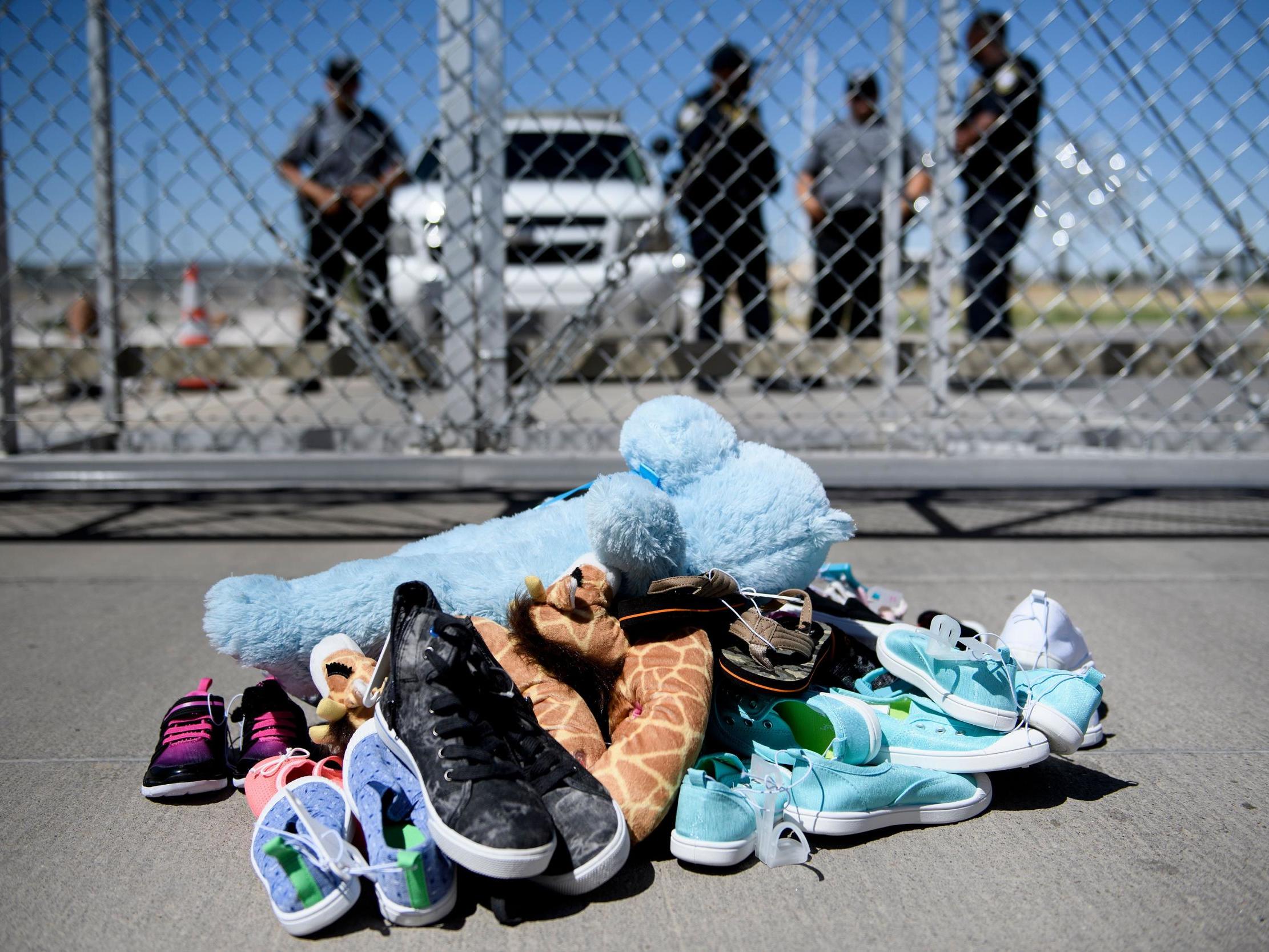Trump administration detains nearly 70,000 migrant children in record high
More children separated from their parents in US than any other country in the world, according to UN

The Trump administration detained an unprecedented 69,9550 migrant children in 2019, an increase in some 42 per cent from the previous year, official data shows.
In line with Donald Trump’s family separation policy, more children were detained away from their parents in the US this year than in any other country on Earth, according to UN researchers.
Under the administration’s strict immigration policies, children also spent more time in detention and away from their family than in previous years, despite the government’s own acknowledgement that it can cause them serious harm.
“There was despair everywhere,” said one Honduran teenager detained for four months before reuniting with his mother. “There was something there that made us feel desperate. It was freedom. We wanted to be free.”
Another young Honduran, detained when he was 16 for more than a year, said he saw his peers harm themselves as a result: “They would cry sometimes, alone, or they would hit themselves against the wall. I thought that was because of them being here for such a long time.”
Both teenagers spoke on condition of anonymity out of concerns for their safety.
The vast majority of children are fleeing Central American countries, often to save themselves from persecution, abuse or violence.
While children have been arriving alone at the US border for more than a decade, the number of children in government custody has grown sharply over the last two years, largely because they have been held for longer time periods.
A few months after Mr Trump took office, the federal agency was caring for about 2,700 children, reuniting them with awaiting relatives or sponsors within about a month. This June, that topped 13,000, and they stayed in custody for about two months.
US immigration authorities have separated more than 5,400 children from their parents at the Mexico border since June 2017, according to the American Civil Liberties Union.
About 1,090 of these separations have occurred since district judge Dana Sabraw ordered an end to the practice – part of the administration’s “zero tolerance” approach to immigration – in June 2018.
The US is now being sued for hundreds of millions of dollars by families who say their children were harmed by being held in detention.
Last week, a federal judge ordered the government to immediately provide mental health screenings and treatment to immigrant families traumatised by family separations.
The judge ruled that the government’s policy “caused severe mental trauma to parents and their children” and that US government officials were “aware of the risks associated with family separation when they implemented it”.
Child trauma expert Ryan Matlow at Stanford University says toxic stress in children is associated with higher rates of depression, anxiety, post-traumatic stress syndrome, heart disease, cancer, and even early death.
“So we want to be a country that inflicts further trauma on individuals who are experiencing intensive adversity and are seeking refuge and help in a neighbouring nation?” asked Mr Matlow, who has met with children inside several of the largest detention facilities.
“Are we okay with the implications of doing harm to vulnerable children – to two and three-year-olds and to teenagers as well? Is that something that we can accept?”
The US government calls migrant children held without their parents “Unaccompanied Alien Children” – UAC in bureaucratic jargon. Federal law requires the Department of Health and Human Services’ (HHS) office of refugee resettlement to provide them with food and shelter, and medical and mental health care.
But the HHS office of inspector general found there are not enough clinicians or specialised care in shelters holding migrant children.
In an urgent request to fund an emergency shelter earlier this year, HHS warned: “Without a way to provide these services, there is an unacceptable risk that thousands of UAC would be without their basic human needs, which would result in injury/death of children.”
Even once children are reunited with their families, the emotional scars of separation often remain.
One father who travelled for weeks to seek asylum with his three-year old daughter cradled in his arms before they were forcibly separated near the US-Mexico border, fears their bond is now irrevocably broken.
For three panicked weeks after immigration officials caught them and sent his daughter to government-funded foster care, he had no idea where she was. It was another month before a caregiver put her on the phone but the girl, who turned four in government custody, refused to speak, screaming in anger.
It later emerged in court that the girl had been sexually abused by another child while in US foster care.
“She’s so small for something like that to happen,” her father, who found out about his daughter’s abuse while he was in detention, later told Associated Press and Frontline. “I felt like I couldn’t do anything to help her.”
Desperate to see his daughter, he begged for a DNA test which, four months into his detention, proved their relationship. Still the government kept them apart.
In June, he gave up and asked a judge to reunite him with his daughter and deport them. The government sent him back to Honduras alone. His daughter followed a month later in mid-August.
But she remained convinced her father had abandoned her, refusing to look at him or hold his hand.
Days after their reunion, he said: “I think about this trauma staying with her too, because the trauma has remained with me and still hasn’t faded.”

Additional reporting by AP
Join our commenting forum
Join thought-provoking conversations, follow other Independent readers and see their replies
Comments
Bookmark popover
Removed from bookmarks